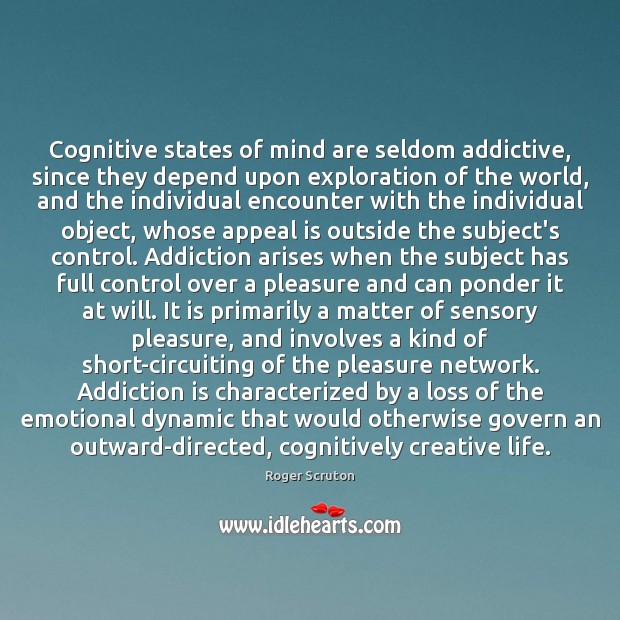Cognitive states of mind are seldom addictive, since they depend upon exploration of the world, and the individual encounter with the individual object, whose appeal is outside the subject’s control. Addiction arises when the subject has full control over a pleasure and can ponder it at will. It is primarily a matter of sensory pleasure, and involves a kind of short-circuiting of the pleasure network. Addiction is characterized by a loss of the emotional dynamic that would otherwise govern an outward-directed, cognitively creative life.








